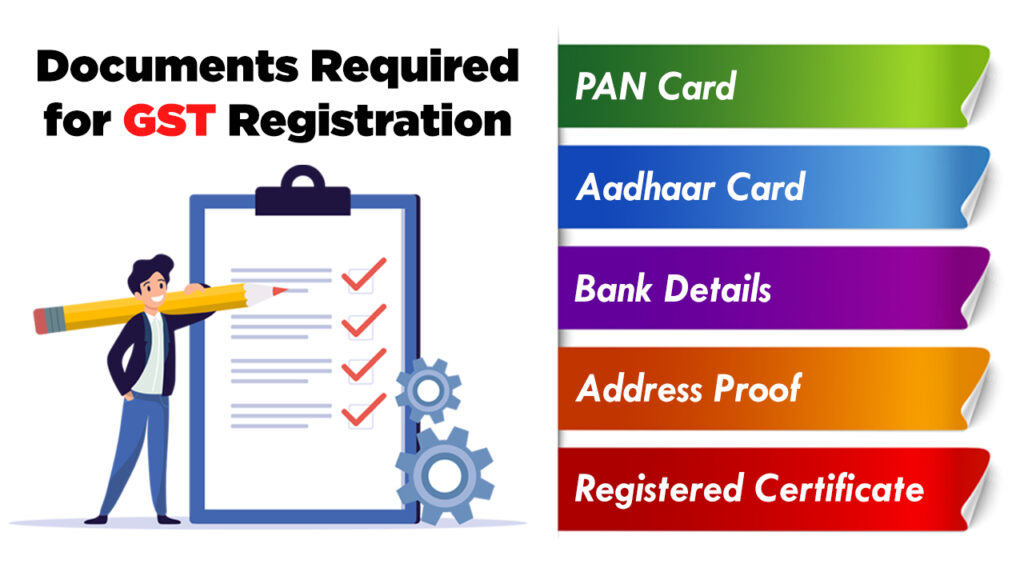How to Navigate Singapore GST Registration for Your Business
Wiki Article
The Ultimate Overview to Streamlining the GST Enrollment Process and Needs for Local Business Owners

Comprehending GST Essentials
To realize the fundamentals of the Item and Solutions Tax (GST) system, local business owners need to first understand its underlying concepts and effects. GST is a value-added tax imposed on the majority of goods and solutions for domestic usage. It intends to streamline the taxation procedure by replacing several indirect taxes imposed by the state and main governments. Under the GST routine, companies are needed to register and collect tax in behalf of the federal government, guaranteeing transparency and conformity.Among the vital principles of GST is input tax obligation credit rating, which allows companies to assert credit for taxes paid on their acquisitions. This mechanism prevents the plunging effect of taxes and advertises efficiency in the tax obligation system. Furthermore, GST is a destination-based tax, implying that the tax is levied at the point of usage instead of the point of origin. This guarantees fair distribution of tax income among states based upon where the services or products are eaten. Understanding these fundamental concepts is important for local business owners to navigate the complexities of the GST system and make sure conformity with the law.
Eligibility Criteria for Enrollment
Having actually established a fundamental understanding of GST principles, little business owners must now satisfy details eligibility standards to proceed with the enrollment process. In India, entities participated in the supply of goods or solutions with a yearly accumulation turnover surpassing Rs. 40 lakhs (Rs. 10 lakhs for special classification states) are called for to register for GST. Additionally, certain companies such as those involved in inter-state supply of goods, informal taxed individuals, and those needed to pay tax under the reverse charge device have to register for GST irrespective of their turn over. Companies that were registered under the previous tax obligation routine (VAT, solution tax obligation, etc) are additionally mandated to register under GST. Agricultural businesses that just supply generate out of main manufacturing are exempt from GST enrollment. It is vital for entrepreneur to carefully evaluate their eligibility based on these standards to make sure compliance with the legislation and avoid any type of charges for non-compliance.Papers Needed for GST Registration

Simplified Enrollment Process Actions
Following the collection and verification of the requisite records, the enrollment procedure for GST can be browsed via a collection of streamlined actions designed to facilitate reliable compliance for small company proprietors. The initial step entails seeing the GST website and picking the 'New Enrollment' choice. Ultimately, the candidate should fill up in Part A of the GST REG-01 type with information such as PAN, mobile number, and email address to obtain an OTP for confirmation. As soon as the OTP is received and entered, a Temporary Recommendation Number (TRN) is produced for additional process. The next action needs filling in Part B of the type with essential service details, posting supporting files, and completing the verification procedure using DSC or EVC. Finally, upon effective confirmation, an Application Referral Number (ARN) is provided, indicating the conclusion of the GST enrollment process. By adhering to these streamlined actions, small service proprietors can efficiently sign up for GST and make sure conformity with tax policies.Tips for Ensuring Conformity
To maintain regulatory site adherence and functional honesty, diligent oversight and proactive measures are pivotal in guaranteeing compliance websites with GST requirements for small company proprietors. Little service owners should stay updated with GST policies, filing deadlines, and any kind of adjustments in tax prices to stay clear of fines and preserve a great standing with tax authorities. Participating in GST awareness workshops or training programs can enhance understanding and compliance with GST regulations, inevitably profiting the business in the lengthy run.
Verdict
In verdict, small company proprietors have to recognize the fundamentals of GST, meet the eligibility standards, gather required documents, and adhere to the streamlined enrollment procedure steps to ensure conformity. By simplifying the GST registration procedure and demands, local business proprietors can stay clear of penalties and run their services efficiently within the legal structure - Singapore GST Registration. It is crucial for local business owners to stay compliant and informed with GST regulations to maintain an effective service operationSmall company proprietors looking for GST registration should ensure they gather and submit the necessary records to finish the enrollment procedure effectively. The papers required for GST registration typically consist of proof of company enrollment or consolidation, PAN (Long-term Account Number) card of the organization identification, entity and address proof of the promoters/partners/directors, photos, address proof of the area of business, bank account declarations or canceled cheques, and permission types. Participating in GST awareness workshops or training programs can improve understanding and conformity with GST guidelines, eventually profiting the business in the long run.
By streamlining the GST enrollment process and requirements, tiny service proprietors can avoid penalties and operate their companies smoothly within the lawful framework. It is important for little organization proprietors to stay enlightened and compliant with GST policies to keep an effective business operation.
Report this wiki page